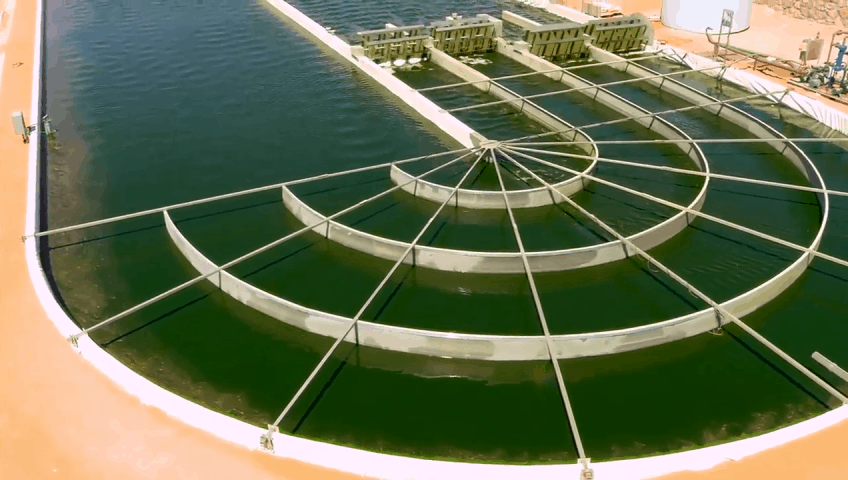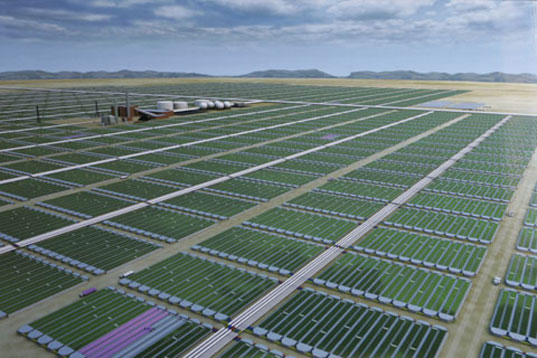ALGAE - Green Gold

Algae Production for Biofuel
Most biofuels in the world today are sourced from corn, sugarcane, wheat, or other traditional food crops. Algae represent a quick-growing, energy-rich, abundant, non-food source of biofuel. Commercial-scale algae production is done on algaculture farms.
Algaculture can produce biofuels, and can also produce other useful, NON-human food, products such as animal feed and fertilizer.
In reality, most current biofuel sources are inadequate to meet rising global demands for transportation fuels. In addition, most biofuel today is derived from food crops, which are needed to address the ongoing global food crisis.
Algae is a solution for producing ethanol and biodiesel from an energy-rich, abundant, quick-growing, non-human food source (disregarding edible seaweed).
Algae production for biofuel (algaculture) represents a solution to producing renewable biofuel without using crops that are usually designated as food. Algae production for biofuel is increasingly economically feasible.
However, algaculture needs more research and development in order to have breakthroughs that drive down the cost, and increase the efficiency of this renewable energy source.
Benefits of Algae as a Source of Biofuels - Algaculture Farms

Algae has an exceptionally rapid growth rate - algae grows 20–30 times faster than food crops. Algae contain up to 30 times more fuel potential (in the form of plant-based oil) than other types of 1st generation biofuels.
Algaculture farms for commercial-scale microalgae production (like the one pictured here) can be located anywhere in the world; such as on land deemed marginal for agricultural food crop production, for example.
Algae, specifically microalgae, can produce up to 60 times more transportation fuel per acre than crops grown on land.
One great feature of microalgae is that 20-80% of microalgae's mass is plant-based oil, ideal for the production of biodiesel.
Another great feature of algae is that it requires carbon dioxide (CO2) to grow, so algae sequesters CO2 from the atmosphere as it grows. Algae reproduce quickly, needing only sunlight, air, and water to grow; and algae by-products are non-toxic and biodegradable.
As algae grows, the algal oil is harvested for fuel; while the remaining green mass by-product can be processed into animal feed and/ or fertilizer, or can be processed into "algae-pellets" and used as a fuel that is burned in industrial boilers.
Algaculture has proven, based on current algae production technologies, that it can help to provide for future global energy needs while being economically viable and sustainable. Algae offers a great potential option for a more sustainable transportation fuel, including gas and diesel for vehicles and even jet fuel for airplanes.
Algae offers a range of other benefits and co-products in addition to being a fuel solution; such as algae as a type of carbon sink (as algae absorb carbon dioxide as it grows), algae-derived fertilizers, animal feed, and/ or algae as an energy source in power generators as algae-pellets.
Please also see:
Renewable Energy: Biomass and Biofuel